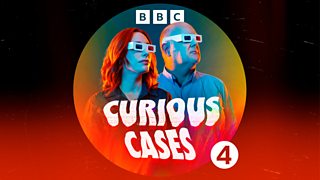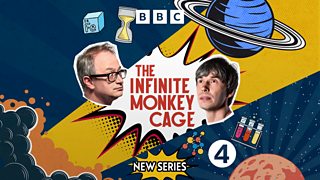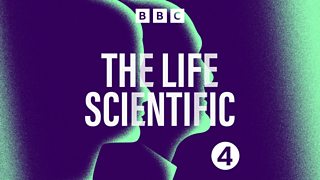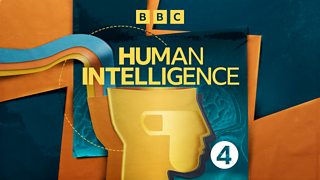Why do we have grandmothers?
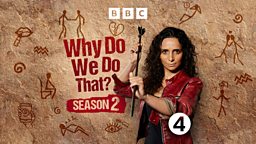
For most animals their biological purpose is to survive and have children, and all – except humans, killer whales and Asian elephants – die after their reproductive role has ended. Not only do human grandmothers buck this trend, but they have an evolutionary purpose that is hardwired into family life – after all, you get 25 percent of your DNA from each one.
With the help of anthropologist Dr Emily Emmott and midwife, educator and grandmother Sheena Byrom OBE, Ella Al-Shamahi finds out why this role is so pivotal.
Here are six reasons why grandmothers are unique:
Childhood is a shared project
There is an oft-quoted African proverb that states: “It takes a child to raise a village.” It’s a cliché with a big truth behind it. “Homo sapiens have the longest childhood of any species,” explains Ella, “because we are such a social species, and we have so much more to learn about how to exist in large groups with language and lots of complicated cultural practices.” So, not only is raising a child expensive in financial terms (estimated at £260,000 to the age of 18 in the UK) but it’s also labour-intensive and requires “all hands on deck”.
There are some studies, in different populations, which found that maternal grandmothers might do more direct childcare, whereas paternal grandmothers might provide more resources.
Menopause frees grandmothers up
A theory called the “grandmother hypothesis” suggests that the menopause evolved to allow grandmothers to help look after children. Among the studies undertaken on this phenomenon was with one of the few remaining hunter-gatherer tribes, the Hadzabe of Northern Tanzania. It was noted that while young mothers carried their babies, it was the grandmothers who went on foraging trips to find food.
“This research is cross-cultural,” says Dr Emmott, “so it's not like we're saying, there are a few cultures that kind of lean heavily on grandmothers – it seems to be much broader than that.”

Grandmothers make for “better survivorship”
Part of the broader picture mentioned by Dr Emmott comes from research by anthropologist Dr Rebecca Sear who collected data on the pivotal role of the grandmother across 45 different societies. She found that children living in the same village as a grandmother had what Dr Emmott calls “better survivorship”, in other words: “They're more likely to survive in these high mortality contexts where they don't have medical care.”
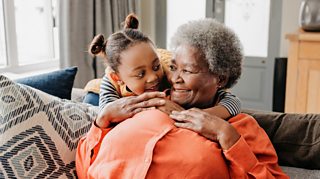
I have much more time, and I have more patience, and I do think that I'm a little bit more lenient with my grandchildren than I was with my children.Sheena Byrom OBE compares her experience as a mother to being a grandmother
Maternal grandmothers and paternal grandmothers have different qualities
There are anomalies within the role of the grandmother, and the most marked is between maternal and paternal grandmothers.
“There are some studies, in different populations, which found that maternal grandmothers might do more direct childcare, whereas paternal grandmothers might provide more resources,” explains Dr Emmott.
In general, maternal grandmothers are associated with positive outcomes for “survivorship” for children but, says Dr Emmott, “if you're looking at reproduction, paternal grandmothers might be associated with families being able to have more children; over the long run, that might kind of have a negative effect on children's survivorship.”
Being a grandmother is like having a second chance at childcare
Midwife, educator and grandmother Sheena Byrom OBE became a grandmother in her 50s. Shocked and unprepared at first, she was eventually “completely in love and transformed”, adding that “it was the most wonderful feeling.” Comparing the experience to being a mother, Sheena says: “I have much more time, and I have more patience, and I do think that I'm a little bit more lenient with my grandchildren than I was with my children. I can see now when I look back, that maybe I was a little bit too harsh and too rigid.”
A grandmother doesn’t have to be a relative
“Being cosseted by people who absolutely adore you is bound to make a difference to your life,” says Sheena Byrom. This is something that Ella can testify to. “My nan lived with us since I was about six months old,” she says, “and I have never known a generosity or strength of spirit mixed with humour like hers. But my nan isn't my real nan; she isn't a blood relative, she never married into our family, and she isn't even the same ethnicity – she's white and I'm Arab – but she is my nan. Biology is just a part of our story.”

-
![]()
Curious Cases
Hannah Fry and Dara 脫 Briain tackle listeners' conundrums with the power of science!
-
![]()
The Infinite Monkey Cage
Brian Cox and Robin Ince host a witty, irreverent look at the world through scientists' eyes.
-
![]()
The Life Scientific
Professor Jim Al-Khalili talks to leading scientists about their life and work
-
![]()
Human Intelligence
Naomi Alderman dissects the minds of brilliant thinkers from the past, examining the myriad ways in which humans think.
